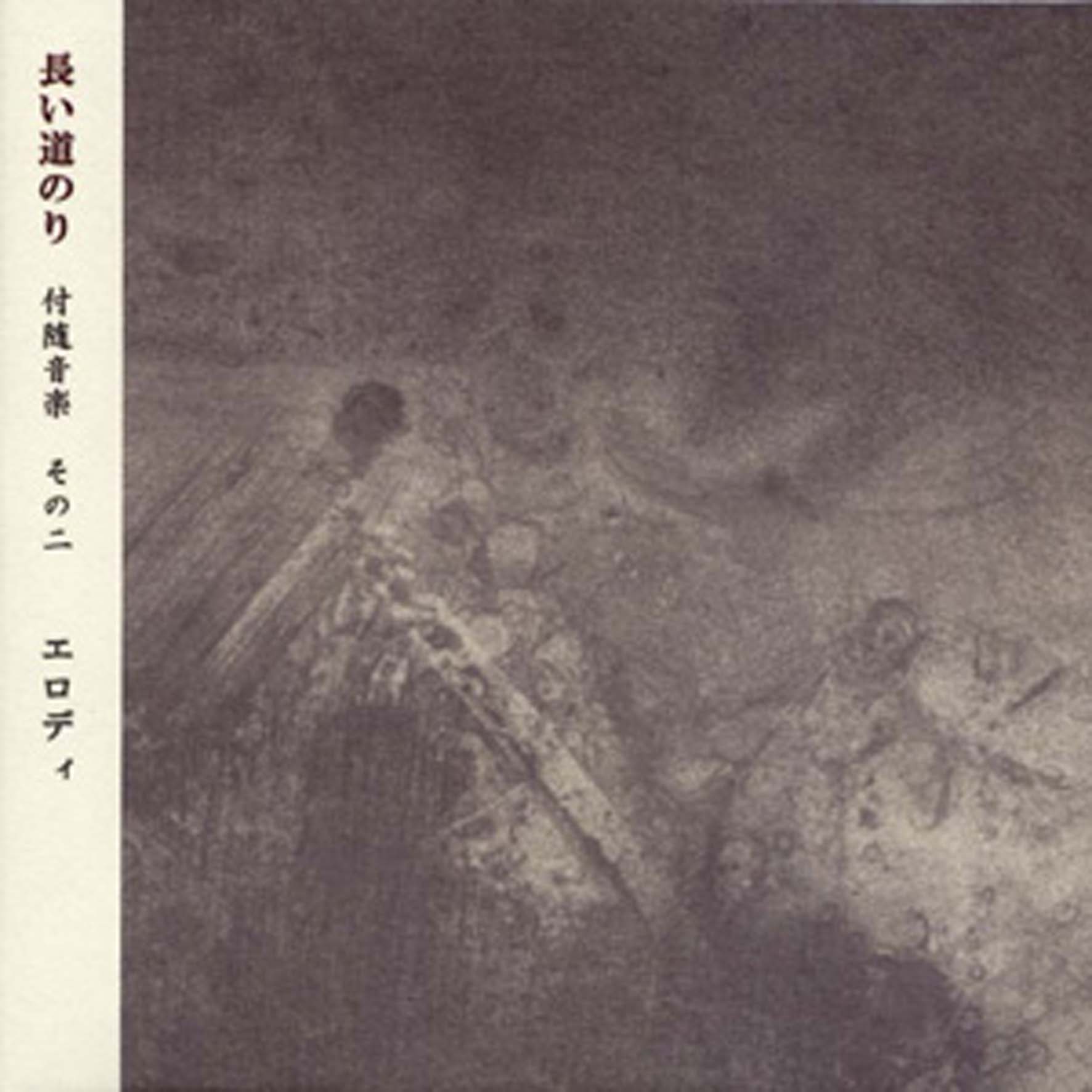Elodie, "Odyssee"
 This collaboration between Andrew Chalk and Timo Van Luijk (Af Ursin) has been active since 2011, yet this is the first of their albums that I have actually heard, as Van Luijk shares Chalk's love of limited, small press-style releases.  As a result, Elodie's output has mostly been a series of vinyl-only releases from Belgium and Japan, though Stephen O'Malley’s Ideologic Organ has thankfully stepped up to get their next album to a wider audience.  On paper, Odyssee seems like a very poor choice for my first Elodie experience, as it has two traits that generally make me steer clear of an album: it is both a live recording and the soundtrack to a film.  In reality, however, this album is quietly stunning, taking Debussy-style Impressionism into gorgeously smoky, twilit, and eerily hallucinatory territory.
This collaboration between Andrew Chalk and Timo Van Luijk (Af Ursin) has been active since 2011, yet this is the first of their albums that I have actually heard, as Van Luijk shares Chalk's love of limited, small press-style releases.  As a result, Elodie's output has mostly been a series of vinyl-only releases from Belgium and Japan, though Stephen O'Malley’s Ideologic Organ has thankfully stepped up to get their next album to a wider audience.  On paper, Odyssee seems like a very poor choice for my first Elodie experience, as it has two traits that generally make me steer clear of an album: it is both a live recording and the soundtrack to a film.  In reality, however, this album is quietly stunning, taking Debussy-style Impressionism into gorgeously smoky, twilit, and eerily hallucinatory territory.
Odyssee consists of just one 33-minute piece, "Musique En Scène II," which was recorded live at the Geräueschwelten Festival in Münster in 2015.Although the release itself is characteristically lean on background information or useful details, the piece was apparently performed as accompaniment to a film that Van Luijk made that very evening.  Since the film did not exist earlier that day, it is probably safe to say that the music was completely improvised.  It certainly does not sound like it though, nor does it sound at all live (until the audience begins clapping at the end, anyway).  More importantly, it also does not sound particularly like an Andrew Chalk album, nor does it bear all that much resemblance to what little Af Ursin I have heard (though Van Luijk is admittedly kind of multi-instrumentalist shape-shifter).  I will not say that Elodie is necessarily greater than the sum of its parts here, but they certainly transcend whatever expectations I had and offer something a bit unexpected.  Of course, part of that stylistic transformation is due to the piece's simple structure and instrumentation, as it is essentially a languorous and Eastern-flavored flute solo centered on a small cluster of notes.  For his part, Chalk provides a shifting and understated backdrop of quietly swelling synth chords, which is just perfect, as a large part of Odyssee's otherworldly beauty lies in the breathy intimacy of Van Luijk’s flute.  Any further clutter would dilute the magic.
A more significant part of Odyssee's mesmerizing spell lies in the eerily melancholy and exotic mood, as it evokes nothing less than the exquisitely lonely sensation of being alone in a vast desert at night, though the piece gradually becomes somewhat less haunted-sounding as it progresses.  There is also quite a bit of subtle beauty to be found in the details.  For example, while Van Luijk’s woozily snaking flute melody is presented with crystalline clarity, it often leaves a ghostly afterimage that lingers in the air.  That dreamy reverie is sometimes additionally enhanced by a sheen of feedback or chirping, trilling overtones. The overall effect is quite a surreal one, as the piece leaves a wake of lingering shadow and murk while simultaneously conjuring up a chorus of illusory birds.  While that is essentially all the piece offers, that turns out to be more than enough, as both the melody and the atmosphere are quite entrancing.  The piece does have a clear arc of sorts, however, as Chalk’s synthesizer gradually becomes a bit more intrusive, creating more complex harmonies.  At the same time, the backdrop gradually shifts towards radiant major chords in the second half, though they are thankfully still vaporous enough to maintain the delicious spell of bleary unreality.  Granted, I would probably like the piece more if the occasional shafts of light were even more toned down, yet I appreciate the ambiguous precariousness of the brighter interludes, as the encroaching undercurrent often suggests a mirage rather than an oasis.
Given its humble origins, Odyssee was probably intended as a somewhat minor release, but it is a weirdly perfect one.My only minor issue is with its brevity, which was no doubt dictated by the film.  As far as I am concerned, it could have easily extended for twice as long, as the duo weave a gorgeously haunting dreamscene from the first notes, nimbly walking the tightrope of providing enough small-scale dynamic variation to keep me deeply immersed while never disrupting that spell with anything more forceful. Granted, I was admittedly quite predisposed to like this album as an Andrew Chalk fan, but that only got my initial attention: if this album were not special, I would have quickly lost interest.  Fortunately, Odyssee feels like something entirely unique.  I love pleasant surprises.  This is exactly the sort of hidden gem that I am always looking for, though I suspect it may herald the dawn of a painfully expensive scavenger hunt for the rest of Elodie's oeuvre.
- Musique En Scène II (excerpt one)
- Musique En Scène II (excerpt two)
- Musique En Scène II (excerpt three)
 



